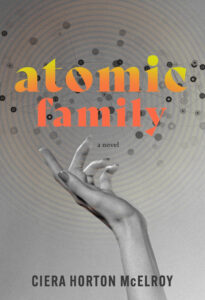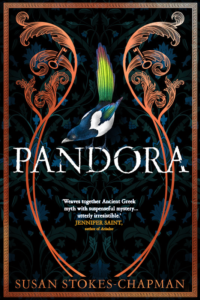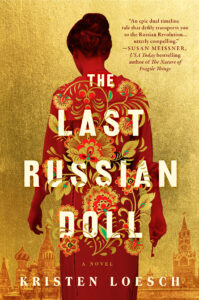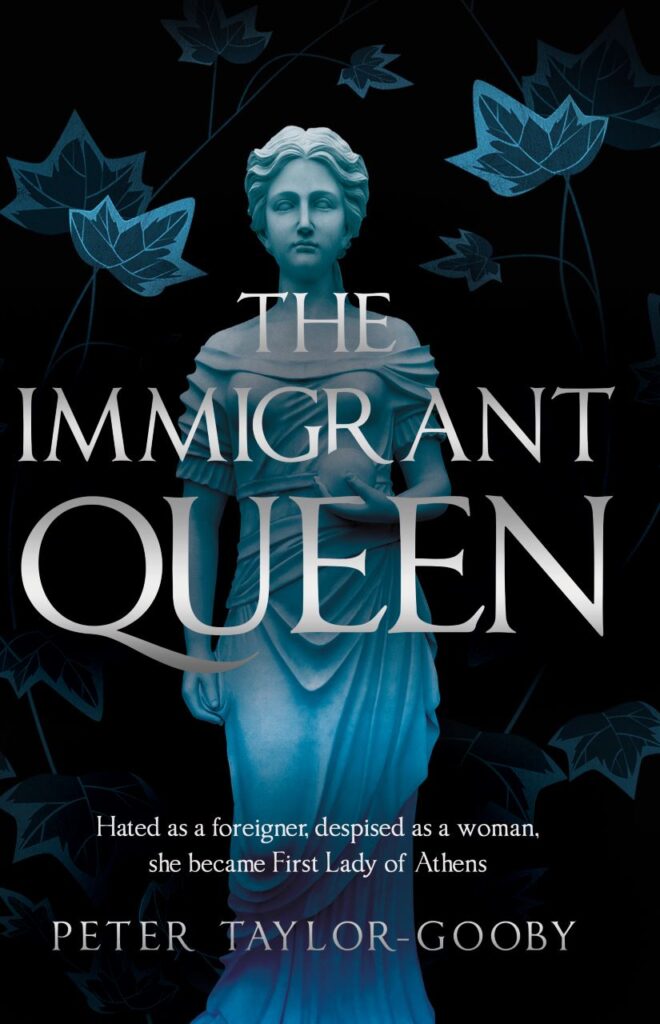New Voices: Dan Jones, Kristen Loesch, Ciera Horton McElroy & Susan Stokes-Chapman
WRITTEN BY MYFANWY COOK
Debut novelists Dan Jones, Kristen Loesch, Ciera Horton McElroy, and Susan Stokes-Chapman have creatively transformed historical fact into their own richly textured works of historical fiction.
 Dan Jones is a New York Times bestselling author of historical nonfiction who presents popular television series, including Netflix’s Secrets of Great British Castles. His debut novel, Essex Dogs (Head of Zeus, 2022; Viking, 2023), is the first in a trilogy set during the Hundred Years’ War.
Dan Jones is a New York Times bestselling author of historical nonfiction who presents popular television series, including Netflix’s Secrets of Great British Castles. His debut novel, Essex Dogs (Head of Zeus, 2022; Viking, 2023), is the first in a trilogy set during the Hundred Years’ War.
The novel, which opens in July 1346 when the Essex Dogs land on a Normandy beach, is clearly inspired by his fascination with that period. But for Jones it is “not a history book. It is a novel. It takes its cues from ‘real’ history. But it uses the history (in this case, that of the Hundred Years’ War in the 14th century) to nurture a story which is about much more than medieval warfare.”
It also “plays games with history, subverting sources and cracking jokes,” he says. “It is both faithful to the historical era in which it is set and roughly disrespectful to it. It is a critique and a condemnation specifically of the code of chivalry, expressed through a mad caper that could just as easily be set in World War 2, or Vietnam. Or space.”
Writing nonfiction and fiction feel physically different to Jones. “The two jobs seem to activate different parts of my brain. I do not prefer one to the other, but I’m very glad I now do both. When people ask me to describe the relationship between writing history and historical fiction, I usually ask them to imagine a compost heap. A rich, well-rotted, somewhat smelly compost heap, full of dead things in various stages of putrefaction.
“Do you see it? Good. Now, if you are the historian, your job is to pull your gardening gloves on and dive in. You must sort through the muck handful by handful, trying to puzzle out what has gone into this heap of spoil, who put it there and why, and what you can say about the society that created it. You are trying to recapture the world that produced the compost heap and tell a compelling story about it to those who are interested.
“If you are the historical novelist, your job is somewhat different. You must root about in your pocket and throw onto the compost heap a handful of magic beans. If you are lucky, a beanstalk will sprout. You must wait a while as it grows. Then you must step carefully over the bent back of the toiling historian, and climb up that beanstalk, hand over hand, until you reach the hole it has poked in the clouds. Up there, you are free to find out what magic land lies at the top, inspired and fed by the history midden down below.”
He continues: “Like the historian, the thing that you, the novelist, are describing would not be possible without the compost heap. You must be both be competent storytellers, in order to communicate what you have seen. And the stories you tell may happen to relate in interesting ways. But they are not the same thing. Not at all.”
 What inspired Ciera Horton McElroy to write her novel, Atomic Family (Blair, 2023), was “curiosity about my own family,” she says. “I grew up hearing stories from my father about his childhood in Aiken, South Carolina during the height of the Cold War—my grandfather worked in a top-secret laboratory at the Savannah River Plant, colloquially called the bomb plant.”
What inspired Ciera Horton McElroy to write her novel, Atomic Family (Blair, 2023), was “curiosity about my own family,” she says. “I grew up hearing stories from my father about his childhood in Aiken, South Carolina during the height of the Cold War—my grandfather worked in a top-secret laboratory at the Savannah River Plant, colloquially called the bomb plant.”
At the time everyone knew they lived in a town that would be considered a target to the Communists, which she found “fascinating and haunting,” she adds. “I traveled to the SRP myself and toured the facility; I read everything I could about the nuclear arms race post-Manhattan Project. I watched documentaries, advertisements, read Civil Defense Agency pamphlets, studied the U.S. Cold War propaganda. And I dug into my own family’s legacy.”
What McElroy found was that the more she explored her family history, “including my grandparents’ troubled marriage,” she says, “the more questions I had about the impact of the Cold War on people’s psyche and relationships.
“What developed was a historical novel that I hope feels quite contemporary. We have an embittered housewife who feels small in her husband’s shadow, and we have a father who struggles to bear the burden of his difficult and dangerous work disposing of nuclear waste,” plus “a child who believes very deeply that nuclear war is coming.”
McElroy describes herself as “a character-first writer,” and so “the plot developed out of a sense of these people, their context, their desires, their fears. And brooding in the background of the book, as it was in my father’s childhood, is the bomb plant, what the housewife calls the fourth member of their family. Silent and deadly and watching.”
 Susan Stokes-Chapman is also more intrigued by characters than just hard historical facts. The seeds for her novel Pandora (Harvill Secker, 2022; Harper Perennial, 2023) were planted after “watching the 1995 BBC adaptation of Pride & Prejudice,” she says. “I’ve been enamoured by the Georgian era, but always found myself more interested in the ‘every day’ characters and the seedy underbelly of 18th-century society. Pandora shows us that in spades – illicit trading, murder at the docks, the hardships of the lower classes and a sad glimpse at abuse in the workplace. It is a cornucopia of the Georgians in 1799!”
Susan Stokes-Chapman is also more intrigued by characters than just hard historical facts. The seeds for her novel Pandora (Harvill Secker, 2022; Harper Perennial, 2023) were planted after “watching the 1995 BBC adaptation of Pride & Prejudice,” she says. “I’ve been enamoured by the Georgian era, but always found myself more interested in the ‘every day’ characters and the seedy underbelly of 18th-century society. Pandora shows us that in spades – illicit trading, murder at the docks, the hardships of the lower classes and a sad glimpse at abuse in the workplace. It is a cornucopia of the Georgians in 1799!”
She clarifies: “Of course, my novel Pandora is also a take on the Greek myth of the same name. When I was a student at university, I took a class entitled ‘Greek and Roman Epic and Drama’ and found a key feature in every single one of the texts covered: men were at the forefront of them all. Women only featured as secondary characters, often placed in the role of victim or villain. Such was the case with Pandora and her fabled box. What was her story? Where was her voice? Her story was begging to be told. Still, I did not want to write a straight-up retelling of the myth – instead I wanted to explore the concept of female agency, the complexities of human nature and how it shapes our destinies, all through the richness of a Georgian lens but using the myth as an anchor. My aim was to make Dora a likeable young woman of the time, someone with a strong character in her own right who could make things happen.”
However, she continues, “a little-known historical event became the lynchpin for the story. In the winter of 1798, the Royal Navy ship HMS Colossus met its watery end off the Isles of Scilly in the grips of a treacherous storm. Stored away in the warship’s hull was British diplomat William Hamilton’s treasured collection of Greek antiquities. While there is no record of a pithos listed amongst the cargo, I felt this gave me the perfect opportunity to place one there in the novel, for the legendary Pandora’s Box was not a box at all … but a vase. What better way for it to find its way to England and into the dark and dilapidated basement of Hezekiah Blake’s Emporium for Exotic Antiquities?” And so “Pandora was born.”
 Kristen Loesch is a “Putin resistance scholar” whose novel The Last Russian Doll (Berkley, 2023) spans three generations of Russian history, from the 1917 revolution to the last days of the Soviet Union.
Kristen Loesch is a “Putin resistance scholar” whose novel The Last Russian Doll (Berkley, 2023) spans three generations of Russian history, from the 1917 revolution to the last days of the Soviet Union.
When Loesch was a child, she says, “I adored the animated film Anastasia; the collapse of the Romanovs in 1917, depicted in countless novels and films, is one that has long captured the popular imagination. I am fascinated by that era—an interest that led me to study Russian politics and history for my postgraduate degree—but I wanted to write a novel that showed the impact of the rise of the Bolsheviks not on that one family, or on that regime, but on the everyday lives of the Russian people. I was particularly inspired by memoirs from that period, for example from a mechanic-turned-soldier who went to fight for the Red Army during the Civil War, or an academic trapped in a town in central Russia as food supplies shrank, or a young girl who watched the revolution unfold on the streets below her window in what was then Petrograd—and many more.”
Several key sections of Loesch’s novel “take place in Stalin’s Russia,” she says, “particularly in the 1930s and ‘40s. The violence and excesses of the Communist Party at that time are well documented, but remain a source of controversy, and even debate, in present-day Russia. The research organization Memorial, dedicated to the study and preservation of this history, was shut down by the Russian government in 2022.”
Loesch strongly believes “in the power of historical fiction to shed light on events, circumstances, and moments that may not have captured popular imagination; to bring these slices of lesser-known history to life in a way that is compelling and accessible; and to open up spaces for the continued discussion of the impact that this history has on people today.”
It is obvious that Jones, McElroy, Loesch, and Stokes-Chapman have all been able to grow and enrich their stories using—as Jones describes it—“the compost heap” of history to fertilise their creative imaginations.
About the contributor: Myfanwy Cook is an Associate University Fellow and ‘a creative enabler’. She is a prize-winning short story writer who facilitates creative writing workshops. Contact myfanwyc@btinternet.com if you have been captivated by the writing of a debut novelist you’d like to see featured.
Published in Historical Novels Review | Issue 103 (February 2023)






